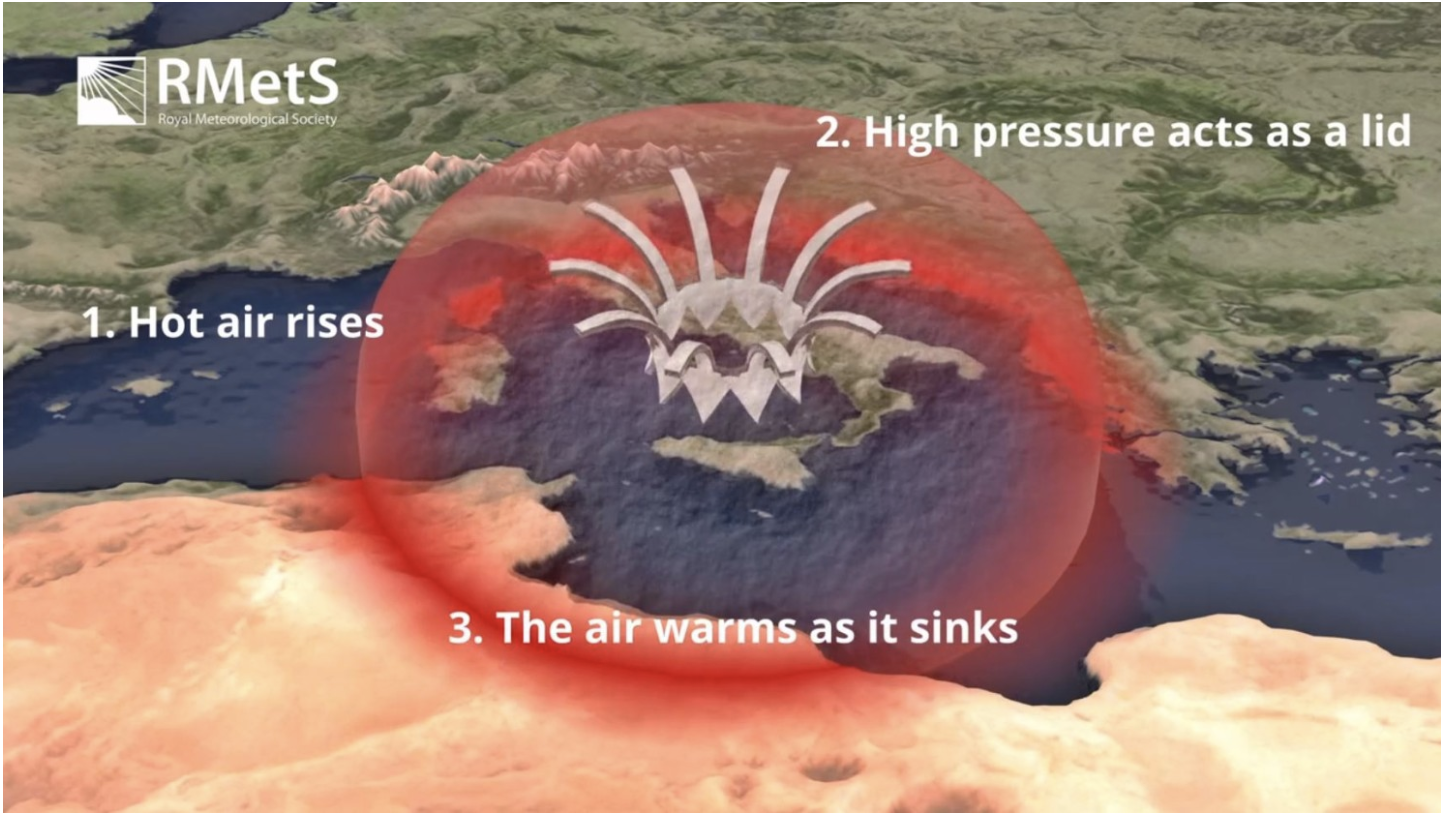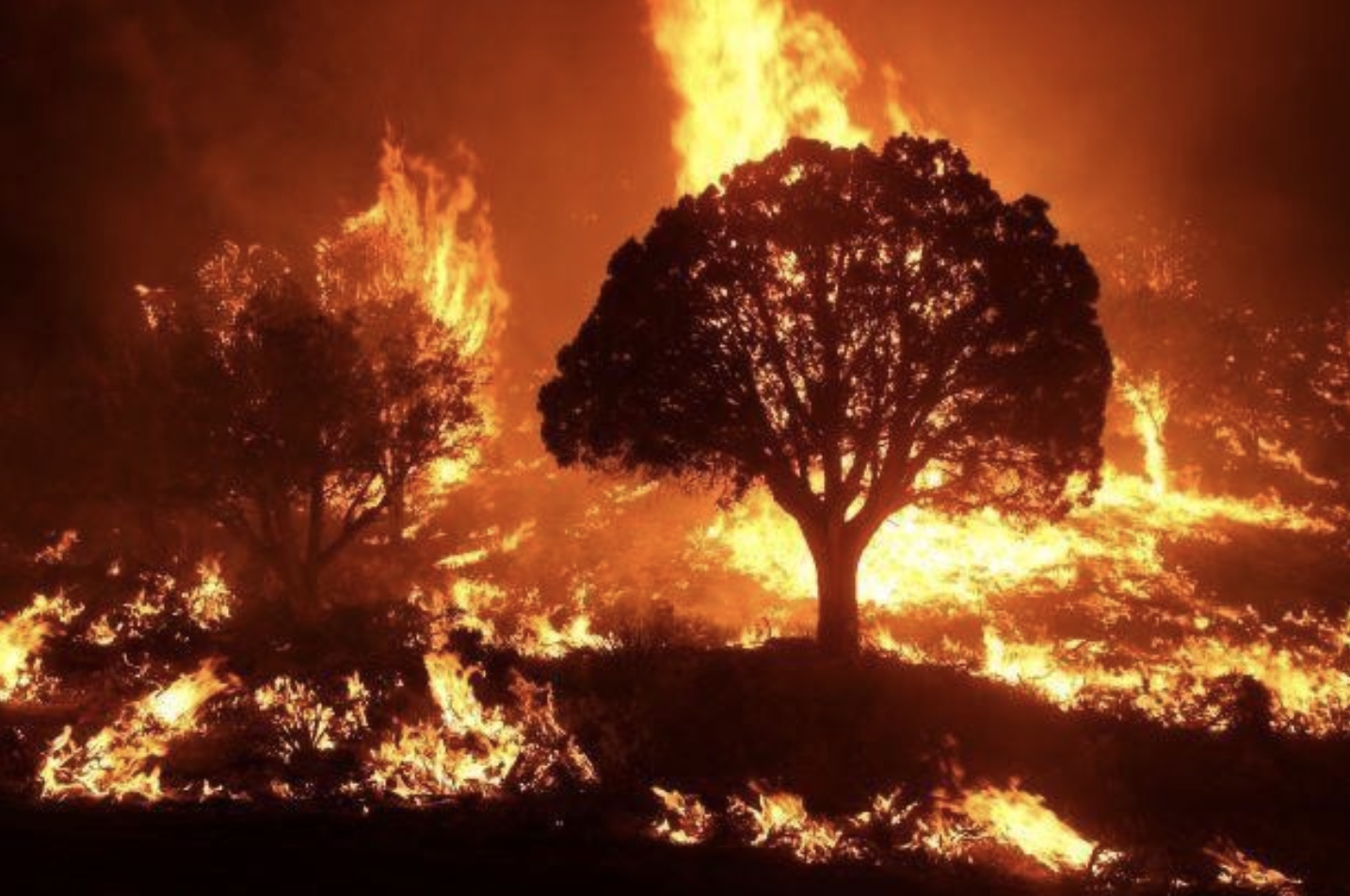
Europe has reached record-high temperatures throughout the summer of 2023, with temperatures reaching 48° Celsius in different locations.
What are the causes?
This extreme heatwave can be largely attributed to a high-pressure system arriving from Africa but established over Europe, which acts as a heat dome that traps warm air and prevents its dispersion.
This phenomenon was influenced by jet stream disruptions, which control weather systems. The prolonged stagnation of this high-pressure system resulted in prolonged heat, exacerbating the event’s severity.

Climate change has led to more extreme temperatures, with the global average temperature 1.2°C warmer than in pre-industrial times. Temperatures will only stop rising if humans stop adding greenhouse gases to the atmosphere.
What are its consequences?
The consequences of the heatwave are far-reaching and multifaceted. Urban areas bore the brunt of the heat, experiencing heat stress, power outages, and strained public health systems.
Many countries were ravaged by wildfires. Indeed, Canada, Greece, Southern Italy, Portugal, Spain, and Hawaii were hit by wildfires that burned houses and forests alike and forced their citizens to evacuate.

Agricultural regions faced challenges as crops withered in the scorching conditions and water resources dwindled.

The natural world suffered, with ecosystems strained by heat stress and wildlife struggling to find water and shelter. Many animals were caught by the wildfires and were not able to find refuge.

What are its effects on human health?
The extreme temperatures put human health at risk, particularly for vulnerable populations. Heat-related illnesses surged, with hospitals grappling to manage an influx of patients.
Elderly individuals, children, and those with pre-existing health conditions were particularly susceptible.

Conclusion
The 2023 heatwave underscored the importance of climate policy and public awareness. Calls for more aggressive climate action gained traction as the events illustrated the urgency of reducing greenhouse gas emissions and limiting global warming.
As the continent grapples with the aftermath, the event serves as a reminder of the need for concerted efforts to mitigate climate change, enhance resilience, and safeguard the well-being of humanity and the environment in the face of an uncertain future.




